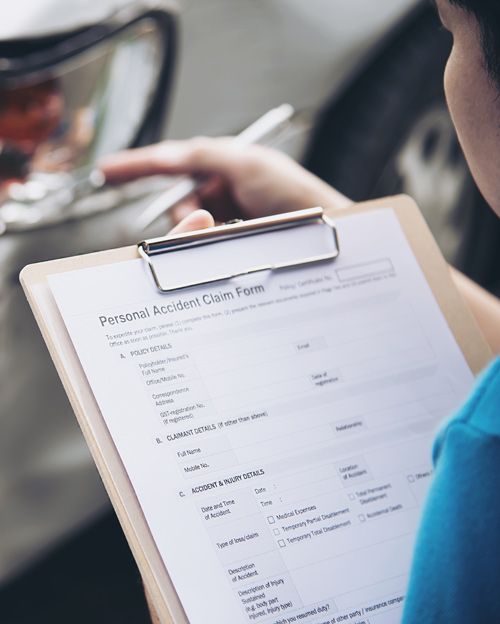Construction Insurance Claim Consultants
Insurance Claims
Understanding Construction Insurance Claims

An insurable event can be an expensive, unwelcome surprise. Many people have horror stories about unpaid or only partially paid construction insurance claims. But sometimes these problems are brought about by our own actions. Perhaps there was a failure to take a required action with the insurance policy, or the fine print was not read closely enough. Sometimes a claim may not be made properly, contain details to the event, or there is a failure to properly claim every cost.
Construction projects can sometimes have events occur which end up as a loss. When this occurs, costs are generally claimable under the employer's insurance policies or those of the contractor. There are many different losses that can be included, such as those that occur from weather, water, or fire damage.
Generally, most policies only cover the basic expenses, such as the cost of debris removal or the replacement of damaged sections of work or other items. These policies do not generally reimburse construction contractors for the expenses due to lost time. Additionally, damages imposed by the employer against the contractor for things such as late construction due to the event or any penalties incurred are not usually covered. Consequential damages are another expense that these insurance policies usually do not cover. Ultimately, the construction contractor ends up needing to file a claim against the insurer for damage repair costs and submit a variation claim for the lost time to the client.
Notifying the insurance company
When a construction insurance claim incurs an insurable loss, notifying the relevant insurance company in a timely fashion is important. The contractor should know a variety of things, such as if it is an insurable event, what policy it can be claimed under, the name of the insurer, and the amount of the deductibles or the excess. The damage should be photographed, and care should be taken to secure the area and ensure that it is safe. Additionally, if it is possible, records of all costs incurred to ensure the safety of the area should be recorded, as these should also be claimable costs.
A report containing the following information should be prepared and then submitted to the insurer:
- The insurance policy number
- The date and time of the event
- The construction project location
- Details of the event
- Details of the damage
- An estimate of the repair costs
- Mitigating actions were taken, if applicable
- Photographs of the event and subsequent damage
- Number of injuries and descriptions
- Actions taken and any repairs that were implemented to make the facility safe and secure
- Names of witnesses if available
- Contact details of the person submitting the report
- The urgency of the response required from the insurer
- Police case numbers if relevant
Other actions to Take
If the construction works or the facility have incurred damage, the employer should be advised immediately. Additionally, if any equipment was damaged, the equipment owners should also be advised immediately. Records of who received the damage information and any related case numbers should be kept by the construction contractor.
Depending on the incident, the police may need to be notified. If this occurs, a case number needs to be obtained by the construction contractor. Some project accidents must be reported to the authorities, such as when a member of the public was affected or in the case of serious injury or death.
Once contacted, the insurer will usually advise if the damage will be inspected by an assessor and what next steps need to be taken. The damage cannot be repaired until the go-ahead to start is given by the insurance assessor.
Time is critical, as the damage incurred could delay the project's progress. This delay should be avoided whenever possible because most insurance policies do not cover impacts resulting from delays. The insurer must understand the importance of being able to continue project work and get repairs made.

What Costs Should Your Construction Insurance Claim Include?
All costs that are associated with making the necessary repairs should be included on the insurance claim. These include the cost of:
- The cost of the materials together with their transport, insurance, and handling
- All labor costs
- Any equipment required to reinstate work
- Debris removal and disposal, cleaning, removal of storm and flood water
- Protection of the undamaged work which is affected by the repair work
- Demolition of damaged structures
- Supervision and overhead costs
- Plant and equipment damage, although these may need to be claimed under an item's individual policy
- Temporary support or access structures
- Subcontractors’ costs associated with the damage
Consequential damages are unfortunately not covered under most insurance policies. If a project delay occurs, the delay and any associated costs will also not be covered.
In the case of a project that has a costing system that uses cost code, you should associate a specific cost code to the claim. This will make it much easier to easily find the costs.
Is the Client Responsible?
There may be cases where the client is responsible for an insurable event's damage. For example, the client may be found responsible for water flooding if they chose to discharge water that then floods the construction work. Their operations or vehicles could have damaged the contractor's equipment or the construction work. If this is the case, the contractor should notify the client's insurers first, and their claim should be launched with them also.
It is always important to keep their insurers apprised of the event, as well as the costs. If losses occurred that can be linked back to the client's actions, a claim could be made against the client by the contractor.

